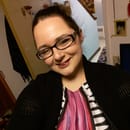If you’re still looking for goals to add to your 2018 resolutions, look no further: “practicing reflection” should fill that empty slot. Reflection is a valuable personal process that everyone (including you) should be utilizing daily.
At its core, reflection is analyzing the experiences in one’s life. Donald Schön, contemporary philosopher and former professor at MIT, defined it best as “consciously looking at and thinking about our experiences, actions, feelings and responses, and then interpreting or analyzing them in order to learn from them.” It is the act of pulling an experience from your brain, holding it in your hands and examining all of its sides. And by examining it, you can learn from it.
So why should you be practicing reflection? Because it is an incredibly powerful way to learn about yourself. Through constantly examining your daily experiences, you discover patterns in your behaviors and thought processes. It can help you become a better learner, a better worker and a better thinker.
To illustrate exactly what I’m talking about, I can tell you about my experience with reflective practice. In the past several years, it has become a huge part of my life. I was first introduced to the concept in high school; my school required students to do writing and presentations to reflect on their academic progress. It forced me to not just experience school, but also to reflect on those experiences and learn from them.
I quickly found that reflection helped me see new things about myself. For instance, I used reflection to gain a better understanding of how I operate as a student. Especially in senior year, I started to carefully examine my emotions in the classroom. I made mental notes of what assignments made me happy and which left me unsatisfied. I did small reflections every day, and it helped me gain a better understanding of my learning preferences. I discovered patterns in my thinking and eventually pinpointed something concrete about myself: as a student, I gauge my success on how emotionally attached I become to something. And now that I know how I work as a student, I can keep that in mind as I move through the world of higher education.
This a perfect example of the reflection process in action. I examined my emotions, found a link, then uncovered something crucial about myself. Now, I can use that discovery to my advantage.
So how can you become more reflective? It’s simple: just start by taking a single experience (a conversation, a meeting, a party, a romantic encounter…) and start questioning it.
Many scholars have crafted models for this process—for example, Gibbs’ reflective cycle:
This model has all of the elements you need to reflect deeply on something. There are other models just like this (such as Rolfe’s reflective model) that have a lot of the same elements.
Here are some guiding reflective questions that you can use on the daily:
First, think about an experience: What happened? What went well? What didn’t? How did it make me feel?
Think about it exactly as you remember it. Do you think it went well, or did it leave you irritated and annoyed? Your initial reaction is valuable and valid; if your knee-jerk reaction was anger, excitement, annoyance, or fear, don’t discount it. The way you truly feel about a situation is a significant part of the reflecting process.
Dig deeper and make connections: Why do I feel this way about it? Do I feel this way about other things in my life?
Reflection naturally leads to finding the patterns of your life. Consider the way you reacted to something, and ask yourself if this has happened before. If you were at a huge party over the weekend and felt nothing but anxiety the whole night, you may realize most social situations of that nature leave you feeling the same anxiety. Uncovering an emotional pattern like this is a monumental step in learning more about yourself.
Use it as a learning experience: What did this teach me about myself? What can I do differently next time something like this happens?
Now that you’ve dissected the experience and uncovered what it says about you, consider the future. If this experience happens again, what will you do differently? What will you do the same? If said experience will never happen again, you can still walk away knowing you have made strides in personal growth.
Anything you learn about yourself through reflection, big or small, is valuable. Write your discoveries in a journal or keep them in the back of your brain—they may come in handy someday.
All in all, reflection is a way to turn everyday experiences into learning experiences. Life throws so much at us on a daily basis, it would be a shame to experience it all without some afterthought. Embrace the afterthought. Use 2018 to become more reflective, more mindful and more willing to learn about yourself. You might learn more than you ever imagined.



